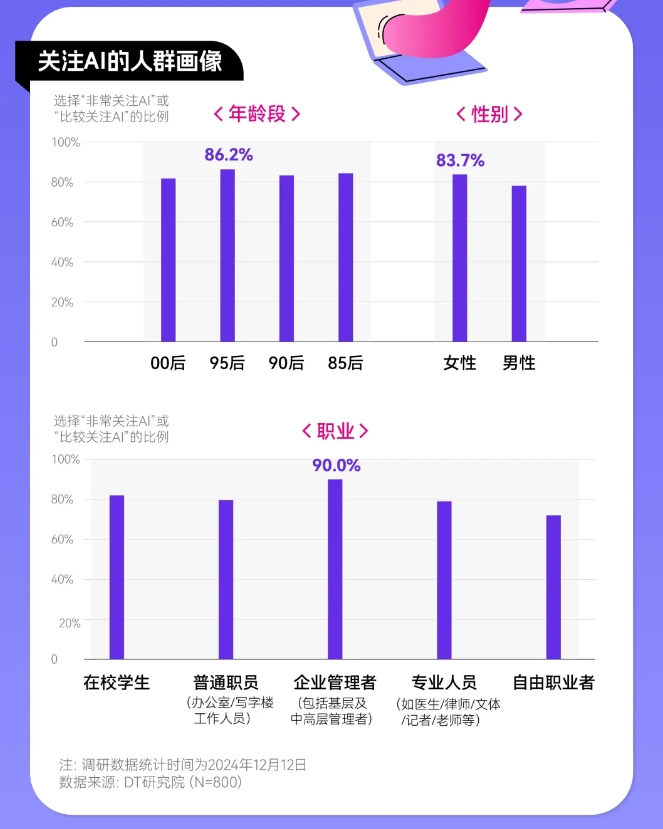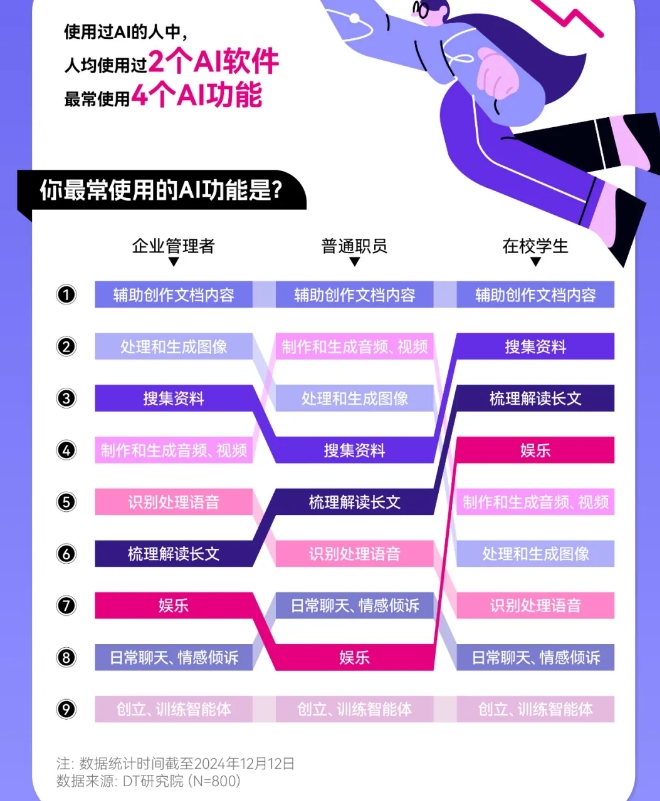According to the "2024 Trends Report on AI Usage Among Young People," the application of AI is no longer limited to specific fields but has permeated all aspects, from work reviews to personal side jobs, creative video production, and even as a cyber friend or partner.
The report indicates that compared to 2023, post-95s, women, and corporate managers show the highest interest in AI. Overall, over 80% of respondents expressed a strong interest in AI tools for text, painting, audio, and video. Additionally, nearly half of the respondents stated they use AI tools daily, demonstrating that AI has become an indispensable part of daily work and life.

Among AI users, each person has used an average of two AI software applications, with the most commonly used features totaling four. Individuals with rich workplace experience are more inclined to utilize generative AI functions, such as assisting in document content creation, processing and generating images, producing audio/video, and recognizing and processing speech. Students tend to use AI mainly for content creation, gathering information, and interpreting long texts to meet their academic needs.
The survey also found that people's evaluations of AI-generated content are generally positive, with "interesting" being the most common feedback. College students are more likely to use AI for brainstorming and trying to realize their creative ideas, while white-collar workers view AI as a "substitute for experts," seeking advice from AI in areas such as law, health, fitness, and travel.
Over 70% of respondents are attempting to learn how to use AI more deeply, particularly focusing on learning AI prompts and how to refine instructions. Among students, 8% have already paid to learn AI, indicating their foresight regarding the demand for AI skills in the future workplace.
In addition to practicality, AI is also used for entertainment and creative expression. For instance, AI is employed in cyber tarot readings, astrology activities, and creating memes and videos. The ease of use and fun aspects of AI tools have made them popular among young people.
Regarding emotional value, nearly 60% of respondents believe AI can provide emotional support and alleviate anxiety. Post-00s and women are more willing to engage in in-depth conversations with AI. AI is also seen as a "parenting tool," especially by post-95 parents, who recognize AI's role in fulfilling their children's communication needs.

AI has also shown its advantages in travel planning and translation, particularly during short holiday periods when the use of AI peaks. With the revival of outbound tourism, the use of AI translation tools has significantly increased.
Finally, although expectations for AI-generated content are higher than last year, there is also an increase in "wait-and-see," "cautious," and "vigilant" attitudes toward AI, especially regarding data privacy protection. Most people are willing to recommend AI tools, provided they have high security and do not leak personal or sensitive information.
AI has become an important tool for enhancing personal competitiveness, and people are exploring how to use AI more effectively while remaining alert to the potential risks behind the technology. As AI technology continues to advance, its applications will become even broader and deeper in the future.










